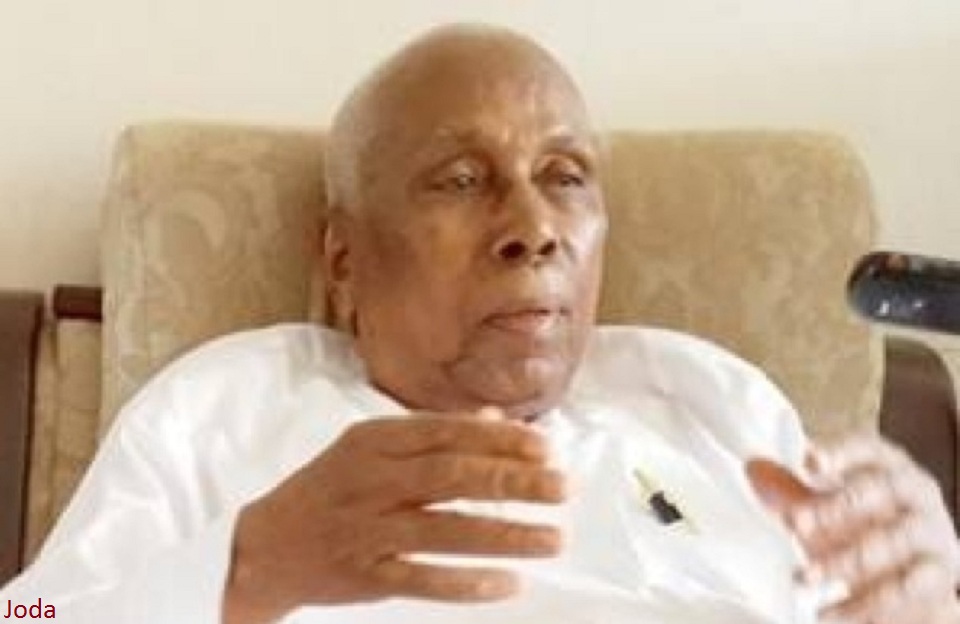Ahmed Joda, who was one of Nigeria’s famous permanent secretaries in Nigeria’s second military regime of retired Gen Yakubu Gowon, has died. He was 91.
He died in Yola, capital of his home state, Adamawa according to a family friend, Fenny Fwa, a prince of the Mbula Kingdom in Adamawa State, who confirmed the death.
Already President Muhammadu Buhari and former President Olusegun Obasanjo have paid tributes to the man who, according to them ensured that Nigeria did not break into pieces, and who distinguished himself as remarkable scholar.
They praised the deceased’s virtues, describing him as a hero for Nigerians.
President Buhari in a statement issued by his Senior Special Assistant on Media and Publicity, Mallam Garba Shehu, highlighted Joda’s “monumental contributions to Nigeria’s unity and progress, from birth of the nation until his death, saying that “his lofty ideals will continue to motivate millions across the nation.”
“We will not forget his sacrifices,” he added.
Joda served Nigeria as a civil servant, first in the old Northern Region, and later at the federal level ,rising to the position of permanent secretary.
He belonged to the class of the highly influential group known in the Aguiyi-Ironsi and Yakubu Gowon regimes as Super PermSecs, which also had in its ranks the late Allison Akene Ayida, Chief Philip Asiodu and Alhaji Musa Daggash.
He was described as a detribalized Nigerian who had the ability to “sooth the nerves of a nation in perpetual conflict.”
Joda, OFR, CON, CFR, rose through the administrative cadre of the Northern regional government and then the federal civil service to retire as Permanent Secretary, Ministry of Industries. During the administration of the youthful Yakubu Gowon, he was considered to be among a group known as super Permanent Secretaries.
He was born in Yola to a Fulani family in 1930. His great-great-grandfather was Modibbo Raji, a 19th-century Islamic scholar and contemporary of Sheikh Usman Dan Fodio. He attended Yola Elementary School and Yola Middle School before proceeding to Barewa College from 1945 to 1948.
He worked briefly at Moor Plantation in Ibadan, and later as an agricultural officer in Yola before entering the field of journalism at Gaskiya Corporation in Zaria. He then attended Pitmans College, London from 1954 to 1956. On his return, he became a correspondent at the Nigerian Broadcasting Service from 1956 to 1960.
He then joined the Northern regional government as a Chief Information Officer then later Permanent Secretary from 1962 to 1967. In 1967, following the outbreak of the Nigerian Civil War, he was seconded to the Federal Civil Service as a Permanent Secretary serving in the Federal Ministries of Information, Education, and Industries, where he retired in 1978.
He retired into private business during the Second Nigerian Republic, where he served as chairman and board member of various companies including the Nigerian National Petroleum Corporation, Nigerian Communications Commission, Pastoral Resolve, SCOA, Nigeria, Chagoury Group, Flour Mills of Nigeria, and the Nigerian LNG.
He was also a member of the 1988 Constituent Assembly which planned the constitutional transition of the Third Nigerian Republic. In 1999, he was appointed a member of the Committee to Advise the Presidency on Poverty Alleviation and in 2015, he headed the Muhammadu Buhari presidential transition.





